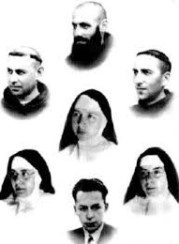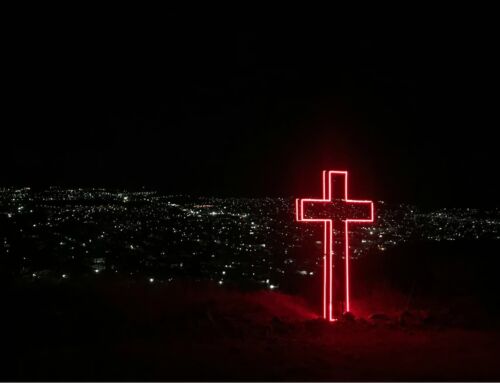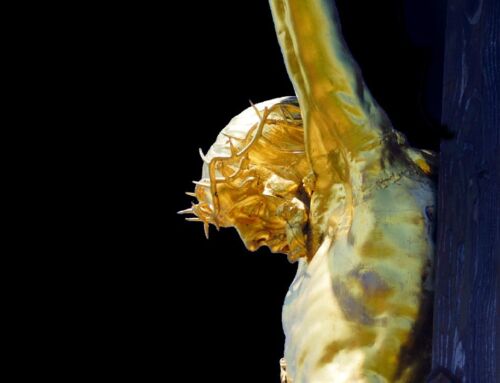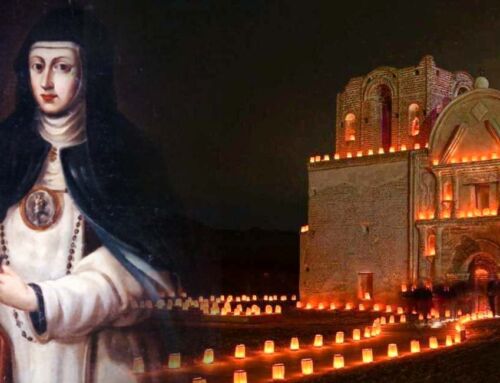The Second Book of Maccabees, Chapter 7, recounts the horrific story of the Jewish mother who was forced to watch the killing of her seven sons during the persecution of the Greek king Antiochus Epiphanes (175-164 BC). This evil military general inherited a portion of Alexander the Great’s empire and set about forcing everyone to adopt Greek customs and worship, which faithful Jews could not accept.
His tyrannical actions led to the Maccabean Revolt and a vicious persecution of Jews in the second century before the coming of Christ. One of the seven brothers, who was put to death in a most cruel way, spoke for all the rest saying,
“We are ready to die rather than transgress the laws of our ancestors” (2 Maccabees 7:2).
The passage detailing the cruel deaths of the seven brothers ends soberly:
“The mother was the last to die after her sons” (2 Maccabees 7:40).
It is hard for us who live in a relatively peaceful and prosperous society to imagine that level of cruelty coming against us. Yet, many of our Christian brethren, even in recent times, have had to face openly the question of martyrdom. When confronted with the choice between death or the renunciation of their Christian values, the martyrs chose death.
The story of the Dutch Catholic Löb family is one such story very close to our own day.
Modern-day Maccabees

So strong was the family’s religious culture that six of their eight children entered religious life! Two were ordained priests, one became a religious brother, and three of the girls became nuns.
It was perhaps a stroke of divine mercy that both parents died peacefully before Hitler began his persecution of Catholics in the Netherlands. The three boys remained in Cistercian religious communities in their home country while the three sisters joined the Trappistine sisters in Belgium. They later transferred to a convent in the Netherlands, which turned out to be a fateful move: none of them escaped the eventual persecution by the Nazis.
Pope Pius XII has received unfair criticism for allegedly being “silent” during the Holocaust while Jews were being killed in the concentration camps. But as the former Vatican Nuncio to Germany, Pope Pius was well aware of what would happen when the Church spoke out to defend the Jews. The Netherlands provided a test case: in 1942, when the Dutch Catholic Bishops issued a pastoral letter against the Nazi persecution of Jews, more Jews were killed.
In this situation, the Nazis targeted and retaliated against the Catholic Church by arresting all Catholics of Jewish origin, who otherwise would have been protected from persecution. Some 300 clergy, religious, and laity were rounded up and shipped to concentration camps because of the Bishops’ pastoral letter. If Pius XII was “silent”, he was entirely faultless. It was a protective silence based on his realistic grasp of a murderous regime.
Nazi persecution
The Jewish-Catholic Löb siblings were direct victims of this persecution. When the persecutions began, the brothers had a chance to escape from their monastery and save their own lives, but they refused to do so because the Nazis threatened to kill ten of their confreres in reprisal for every escape. None of them would subject those innocent men to certain death in order to save their own lives.
On the day they were taken away, the younger brother, Brother Linus, served Mass for his priest brother, Fr. Ignatius, as their last formal act of religion before leaving the monastery.
There is also a marvelous story of the moment when the brothers and sisters found themselves, ironically, reunited in the round-up after more than a dozen years of not seeing each other:
When the brothers got out to the car and saw the sisters they hadn’t seen in 12 – 14 years, the reunion was hearty and joyful. An astonished SS guard said, “You’d think you were being taken to a party!” “That’s right,” said Mother Hedwigis, “you’re just going to help us get to Heaven faster!”
The Nazis were responsible for that joyful family reunion! But soon thereafter, the two priest brothers, Fathers Ignatius and Nivardus, were sent to Auschwitz in Poland and were killed by a firing squad after disobeying orders against hearing the confessions of the other prisoners.
Regarding two of the three sisters, we have very little information about their fate except that they died in the persecution. There is also an early statement from the oldest daughter, Lina (Mother Hedwigis, quoted above), that she was offering her religious life for the return of the Jews to Christ. In this, she mirrored the aspirations of another famous Jewish convert nun swept up in the same persecution, Edith Stein, who the siblings are said to have met in the course of their sufferings.
The third sister, Sister Veronika, was not taken in the first round of persecutions but was later imprisoned in the refugee transit camp, Westerbork, awaiting shipment to a Nazi concentration camp. She was released and died in her convent in 1944 after a long illness. She did not survive the persecution or the war.
The youngest brother, Hans, was also captured in the Nazi onslaught and pressed into forced labor in a Polish zinc mine. He was eventually sent to Auschwitz and died there of frostbite after nearly freezing to death in the transport train. The lone surviving sibling, the youngest, Paula, was successfully sheltered by some heroic Dutch family and was the only surviving child of the eight children born to Ludwig and Jenny Löb.
A pattern of fidelity
Devout souls re-trace a familiar pattern of fidelity in every generation since the seven brothers of the Maccabean persecution died for their faith. It is not a happy pattern, from a worldly perspective. It is full of pain and suffering but suffering that is fruitful when it is turned into sacrifice for others. The pattern is what Christians call the Paschal Mystery – the death and resurrection of Christ – that lives on after the suffering is ended and conquers the power of evil in every age.
Suffering offered as sacrifice brings light and goodness into the lives of others. These spiritual forces have the power to overcome all the evils human beings devise for their fellow man.
The seven Löb siblings may never become canonized saints, but we can be sure that canonization was not their ambition. Goodness was their calling and charity for all was their desire. They offered their sufferings for others and lived in the pattern of Christ’s love to the very last drop of their family’s blood.
We can only thank God that the Löb parents were not alive to see their children murdered by an evil regime.

Soul Work
Call to mind some of the tangible sacrifices that other people have made for you. Look carefully at their sacrifices which were offered out of the goodness of their hearts and done for no other reason than your personal benefit.
If you have a chance to thank someone who is still alive for a sacrifice they made for you in the past, thank them today. If not, thank God for their participation in the pattern of Christ’s goodness, the Paschal Mystery.
Look also at the sufferings of your own life. Can they be offered as a sacrifice for others? Offer them one by one to the Lord who formed the pattern of fidelity and charity as a model for you.
————–
Source: Research Gate.




Absolutely beautiful.